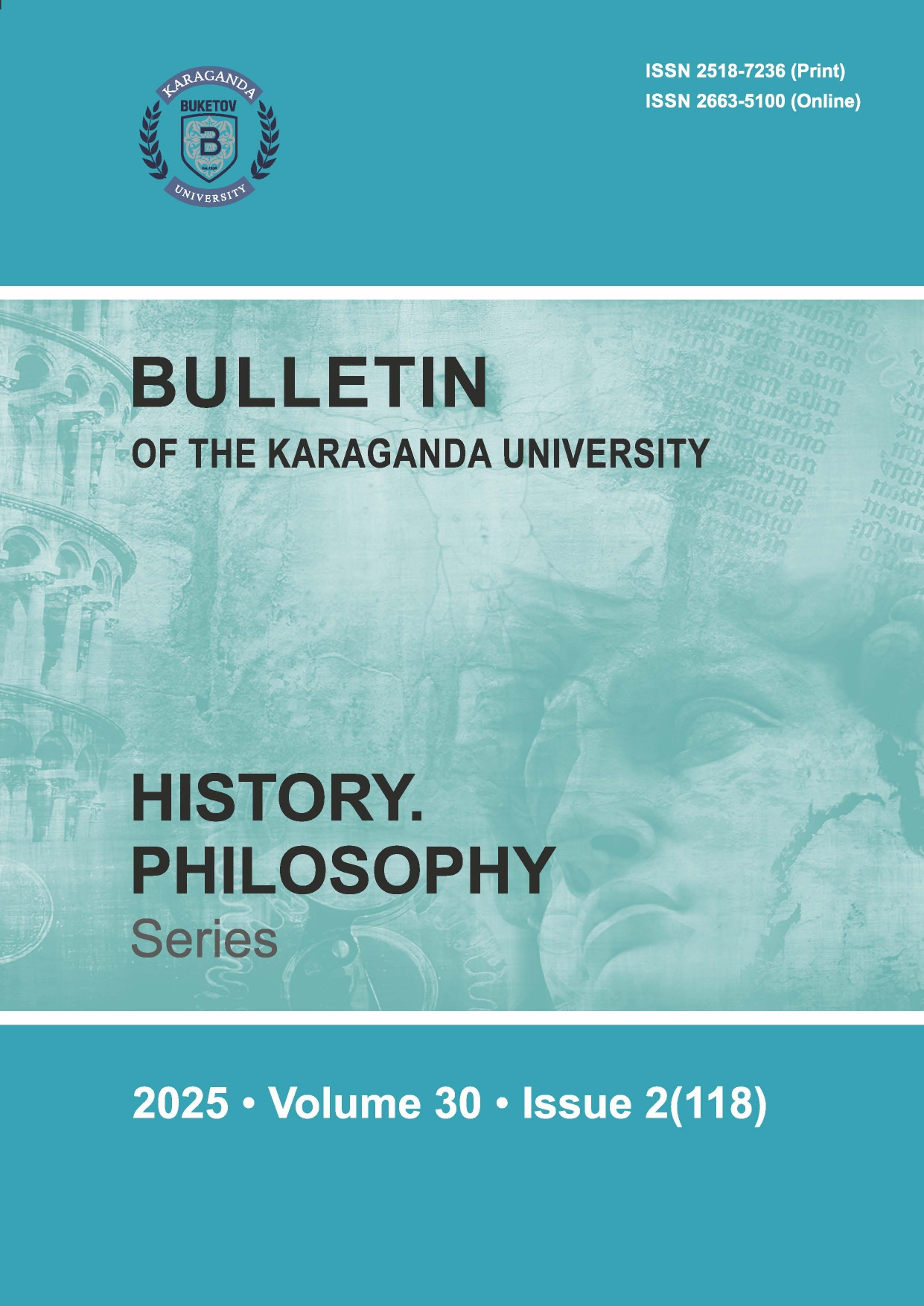The Process of Adaptation and Integration of Ethnic Repatriates in Central Kazakhstan: Socio-Economic and Cultural Aspects (1991–2021)
DOI:
https://doi.org/10.31489/2025hph2/99-109Keywords:
ethnic repatriates, migration, kandasy, Central Kazakhstan, integration, adaptation, socioeconomic status of repatriatesAbstract
This article provides a scholarly examination of the process of ethnic Kazakhs returning to their historical homeland, which began in the early years following the independence of the Republic of Kazakhstan. The study focuses specifically on the characteristics of this process in the Karaganda region. The authors explore the social, demographic, and cultural significance of the repatriation of Kazakh diaspora representatives from abroad. The article analyzes the number of repatriates who moved to the Karaganda region between 1991 and 2022, the impact of the quota system, and the adaptation characteristics of migrants from various countries. The analysis is based on archival records, statistical data, and interviews conducted with ethnic Kazakhs. The authors identify key drivers of migration, including a strong sense of patriotism, respect for national culture and language, and socio-political challenges faced in foreign countries. By employing qualitative research methods — particularly biographical interviews and oral histories — the study delves into the motivations behind migration, patriotic sentiments, and issues of social integration. The article systematically examines the adaptation of ethnic Kazakhs from China, Mongolia, Uzbekistan, and other countries to the socioeconomic environment of Central Kazakhstan, as well as the governmental support provided and the implications of shifts in migration policy. Additionally, the article offers a comprehensive analysis of the number of repatriates arriving in the Karaganda region, the implementation and limitations of the quota system, regional specificities, and the challenges and successes encountered during the adaptation process. The findings highlight the unique features, difficulties, and achievements of repatriation at the regional level and offer recommendations for future migration policy. The research confirms that the return of ethnic
Kazakhs to their ancestral homeland is not merely a demographic phenomenon but also a process of significant socio-cultural and historical importance.




